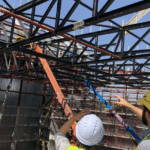Rationale for the Study
To evaluate the effectiveness of the method, an independent placebo-controlled study was initiated — a standard in scientific research.
Key Research Questions:
- How do neurophysiological indicators change after practicing GSR
- Does the method affect stress resilience
- Are there confirmed improvements in cognitive self-regulation?
Objective Data: What the Measurements Revealed
The study was conducted with participants who had completed at least the basic GSR module. The control group consisted of individuals with similar characteristics (age, lifestyle) who had not practiced GSR.
Main Research Tools:
- EEG monitoring (electroencephalography)
- Biometric indicators (heart rate, heart rate variability)
- Questionnaires to assess subjective well-being
- Cognitive tests
Results:
1. Increase in Theta Brainwave Activity
GSR practitioners showed a statistically significant increase in theta wave activity — a frequency associated with deep internal focus, experience integration, and states of mindfulness.
2. Reduction in Physiological Stress
Heart rate variability (HRV) measurements indicated improved stress adaptation markers. GSR practitioners recovered more quickly from stress stimuli, demonstrating a high level of autonomic regulation.
3. Improvement in Cognitive Reappraisal and Self-Regulation
According to questionnaires and cognitive tests, participants reported an increased ability to reframe negative events, reduced emotional impulsivity, and a higher level of self-control.
4. Subjective Improvements
Practitioners reported increased concentration, reduced anxiety, and improved sleep quality after just a few weeks of regular use of the method.
The emergence of scientific evidence supporting the effectiveness of self-development practices is an important step toward their recognition in professional fields. GSR demonstrates a combination of both subjective and objective effects, which strengthens trust in the method.
Prospects and Significance of GSR in Modern Science and Practice
Research findings confirm that GSR is not merely an auxiliary tool but a comprehensive methodology that impacts key aspects of a person’s psychophysiological state. In an era of constant information overload and stress, there is a growing need for scientifically validated approaches to self-regulation and resilience development.
The GSR method shows strong potential for integration into educational, corporate, and clinical settings. Notably, positive changes are observed both in subjective self-reports and through objective biometric and neurophysiological measurements. This makes GSR a valuable resource not only for personal development but also for research in neuropsychology, stress management, and cognitive therapy. The method is already delivering results aligned with modern scientific standards and is well-positioned to become an established part of mental health support systems.
Conclusion: What Research Says About GSR
The GSR system is not just another “relaxation technique.” It is a structured methodology that has undergone scientific validation. Positive changes in neurophysiological and psycho-emotional indicators point to a deep impact on the practitioner’s personality.







